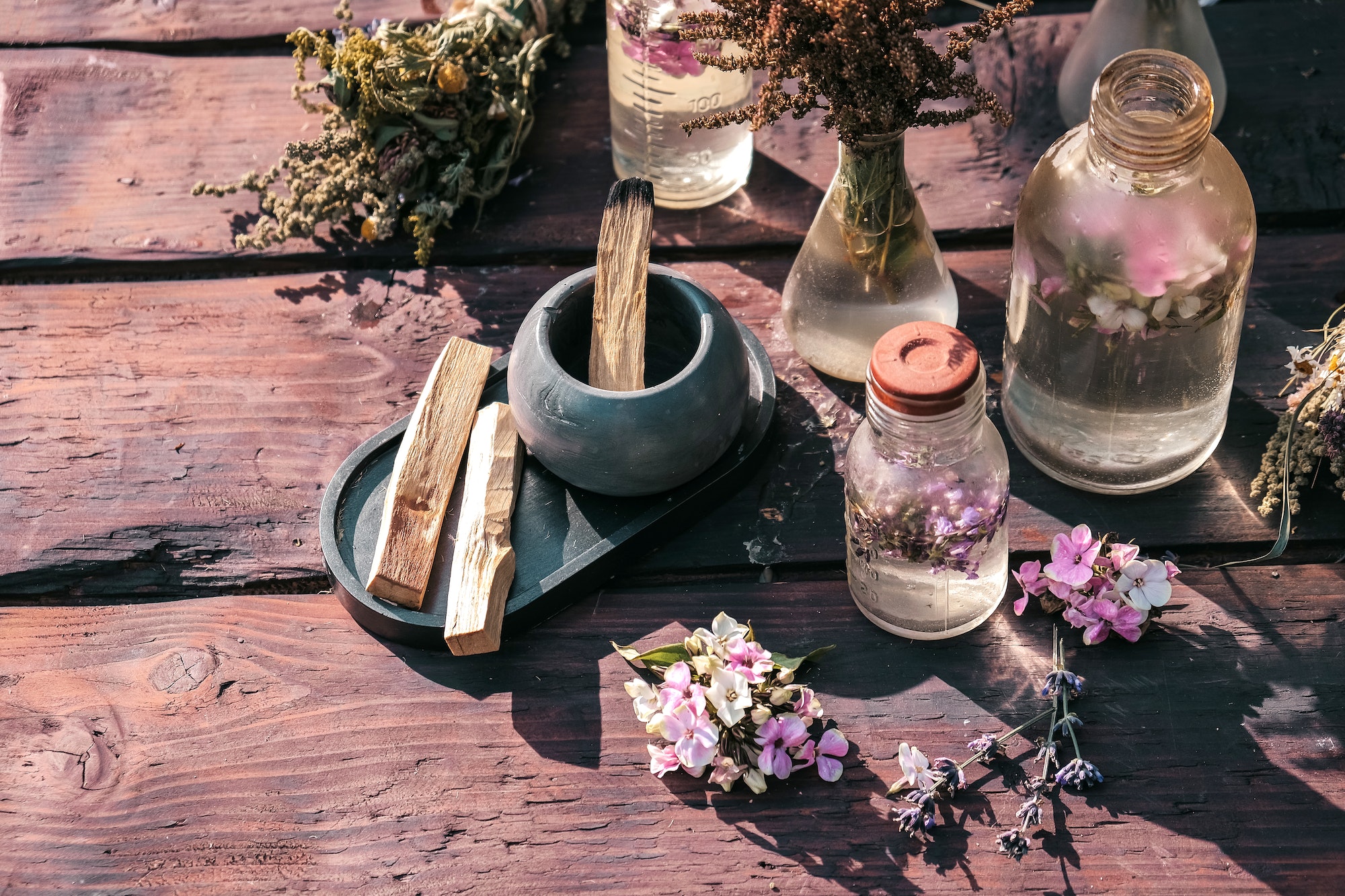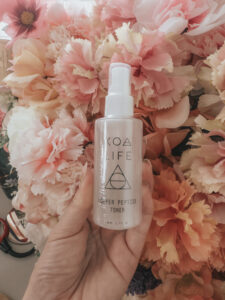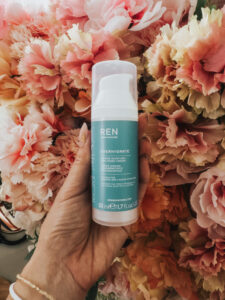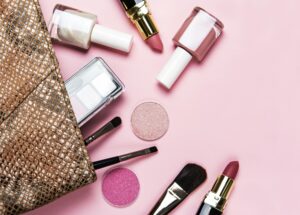Stress and anxiety have become common afflictions for many people. The constant demands of work, family, and daily life can take a toll on our mental and physical well-being. That’s where aromatherapy comes in. Aromatherapy is a holistic practice that utilizes the power of essential oils to promote relaxation, reduce stress, and enhance overall well-being. In this comprehensive guide, we will explore the benefits of aromatherapy for relaxation and delve into the world of essential oils.
Understanding Aromatherapy: What is it and How Does it Work?
Aromatherapy is a therapeutic practice that harnesses the aromatic and therapeutic properties of essential oils derived from plants. These oils are extracted from various parts of plants, such as flowers, leaves, stems, and roots, through a process known as distillation. The resulting essential oils contain concentrated compounds that carry the distinctive scent and therapeutic properties of the plant.
The sense of smell is closely linked to our emotions and memories. When we inhale the aroma of essential oils, the molecules stimulate the olfactory system, which then sends signals to the limbic system in our brain. The limbic system plays a crucial role in regulating emotions, memory, and stress responses. By activating this system, aromatherapy can have a profound impact on our mood, emotions, and overall well-being.
Additionally, essential oils can be absorbed through the skin when applied topically. When combined with carrier oils, such as coconut or almond oil, essential oils can be used for massage or added to bathwater for a soothing and relaxing experience.
The Benefits of Aromatherapy for Relaxation
Aromatherapy has been used for centuries to promote relaxation and alleviate stress. Numerous studies have shown its effectiveness in reducing anxiety, improving sleep quality, and enhancing overall well-being. Let’s explore the specific benefits of some popular essential oils used in aromatherapy for relaxation:
Lavender: The Calming Essential Oil

Lavender is one of the most well-known and widely used essential oils in aromatherapy. Its gentle floral scent has a calming effect on the mind and body, making it an excellent choice for relaxation. Research has shown that lavender essential oil can reduce stress, anxiety, and even improve sleep quality. In a study published in the International Journal of Neuroscience, participants who were exposed to lavender oil experienced a significant decrease in anxiety levels and an increase in mood scores.
To incorporate lavender into your relaxation routine, you can add a few drops of lavender essential oil to a diffuser or mix it with a carrier oil for a soothing massage. You can also sprinkle a few drops on your pillow before bedtime to promote a restful night’s sleep.
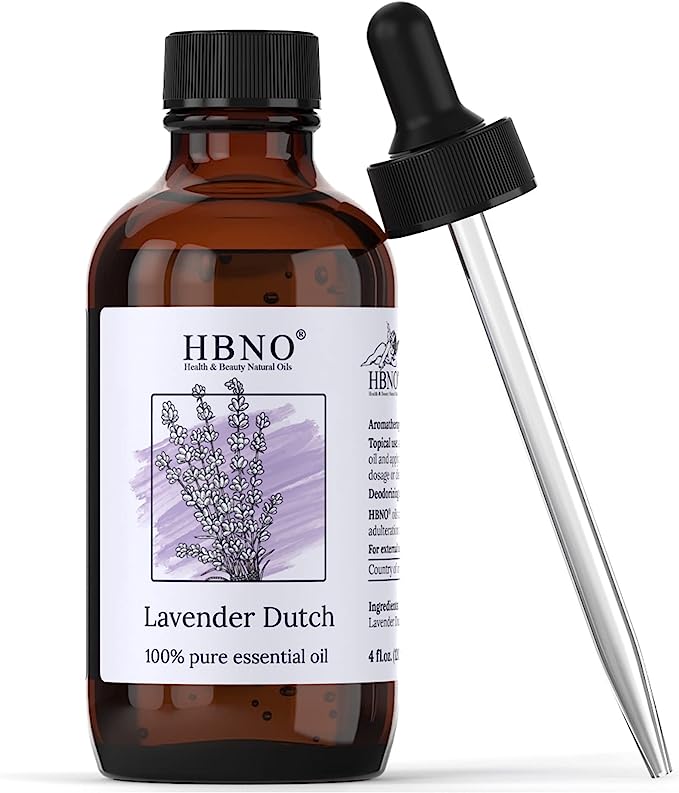
Dutch Lavender Essential Oil
- REMIUM QUALITY DUTCH LAVENDER ESSENTIAL OIL FROM FRANCE: Extracted via steam distillation from the flowers of the Lavandula Hybrida Grosso and packaged in an amber glass bottle with a side glass dropper.
Chamomile: The Soothing Essential Oil
Chamomile essential oil is renowned for its soothing and calming properties. It is often used to alleviate anxiety, stress, and insomnia. A study published in the Journal of Clinical Psychopharmacology found that chamomile extract reduced symptoms of generalized anxiety disorder in participants. Another study found that chamomile oil inhalation helped reduce anxiety symptoms and increase morning cortisol levels.
To harness the benefits of chamomile essential oil, you can add a few drops to a warm bath, mix it with a carrier oil for a relaxing massage, or use it in a diffuser to create a tranquil ambiance in your space.
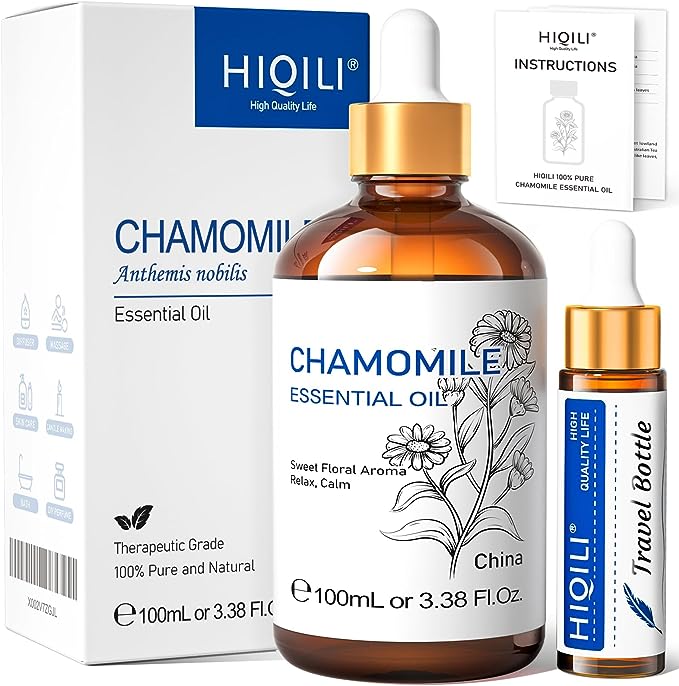
Chamomile Essential Oil
- Pure Natural Chamomile Oil for Skin, Diffuser, Hair, Aromatherapy, Massage and Face – 3.38 Fl Oz
Bergamot: The Uplifting Essential Oil
Bergamot essential oil is known for its uplifting and mood-enhancing properties. It has a citrusy and refreshing aroma that can help alleviate stress, anxiety, and depression. A study published in the journal Phytotherapy Research found that inhaling bergamot essential oil for 15 minutes improved positive feelings and reduced stress levels in participants.
To experience the uplifting effects of bergamot, you can add a few drops to a diffuser, mix it with a carrier oil for a massage, or even create your own natural room spray by combining bergamot oil with water in a spray bottle.
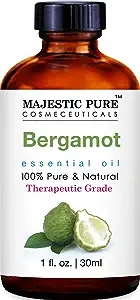
Bergamot Essential Oil
- Therapeutic Grade, Pure and Natural, for Aromatherapy, Massage, Topical & Household Uses, 1 fl oz
Ylang-Ylang: The Relaxing Essential Oil
Ylang-ylang essential oil is derived from the flowers of the Cananga tree and is known for its soothing and relaxing properties. It has a sweet and exotic floral aroma that can help reduce stress, anxiety, and promote a sense of calm. Research has shown that inhaling ylang-ylang essential oil can slow down breathing and heart rate, making it beneficial for individuals experiencing shock or trauma.
To incorporate ylang-ylang into your relaxation routine, you can add a few drops to a warm bath, mix it with a carrier oil for a relaxing massage, or use it in a diffuser to create a peaceful atmosphere.
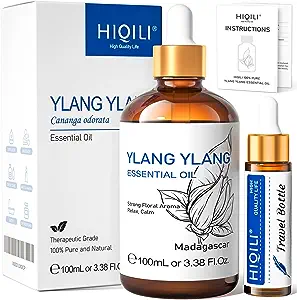
Ylang-Ylang Essential Oil
- 100% Pure Natural Premium Quality Therapeutic Grade,for Diffuser Skin Massage – 3.38 Fl. Oz
Frankincense: The Grounding Essential Oil
Frankincense essential oil has been used for centuries for its grounding and centering properties. It has a woody and earthy aroma that promotes relaxation and reduces feelings of anxiety and stress. Research suggests that frankincense may improve memory and enhance cognitive function.
To experience the grounding effects of frankincense, you can add a few drops to a diffuser, mix it with a carrier oil for a massage, or even incorporate it into your meditation practice to enhance focus and clarity.
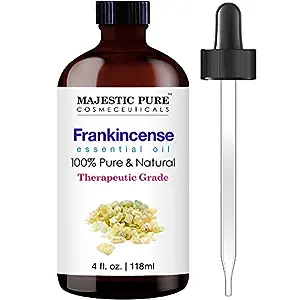
Frankincense Essential Oil
- Therapeutic Grade, Pure and Natural Premium Quality Oil, 4 fl oz
How to Use Essential Oils for Relaxation
Now that we’ve explored the benefits of various essential oils for relaxation, let’s dive into the different ways you can incorporate aromatherapy into your daily routine:
Inhalation
Inhalation is one of the most common methods of using essential oils for relaxation. You can inhale the aroma directly from the bottle, add a few drops to a tissue or handkerchief and inhale deeply, or use a diffuser to disperse the scent throughout a room. Inhalation allows the aromatic molecules to enter your nasal passages and stimulate the olfactory system, leading to a calming and relaxing effect.
Topical Application
Topical application involves applying essential oils to the skin, usually in diluted form with a carrier oil. This method allows the oils to be absorbed into the bloodstream and provides localized benefits. You can massage the diluted essential oil onto your temples, wrists, or the back of your neck to promote relaxation.
Bathing
Adding essential oils to your bathwater can create a luxurious and relaxing experience. You can mix a few drops of your chosen essential oil with a carrier oil or a dispersant, such as Epsom salts or milk, before adding it to your bath. The warm water will help the essential oil vaporize, allowing you to inhale the soothing aroma while your body absorbs the oils through your skin.
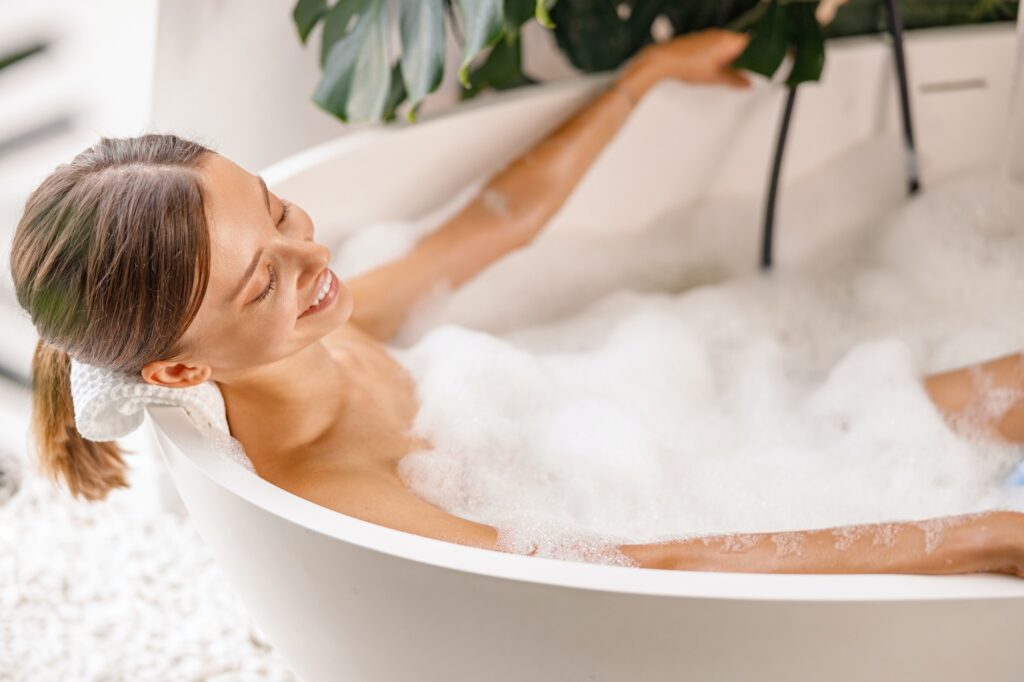
Massage
Massage is another effective way to enjoy the benefits of aromatherapy for relaxation. You can dilute your chosen essential oil with a carrier oil, such as sweet almond or jojoba oil, and use it to massage your body. The combination of touch and scent can enhance relaxation and provide relief from muscle tension and stress.
Personal Care Products
Many personal care products, such as lotions, creams, and body oils, are infused with essential oils. These products allow you to incorporate aromatherapy into your daily self-care routine. Look for products that use high-quality essential oils and are free from synthetic fragrances and harsh chemicals.
It’s important to note that essential oils are highly concentrated and should be used with caution. Always follow the recommended dilution ratios and safety guidelines provided by reputable sources. If you have any underlying health conditions or are pregnant or breastfeeding, consult with a healthcare professional before using essential oils.
Safety Precautions and Considerations
While aromatherapy is generally safe when used properly, it’s essential to take precautions to ensure a safe and enjoyable experience. Here are some safety guidelines to keep in mind:
Quality and Purity
Choose high-quality essential oils from reputable brands that guarantee purity and provide detailed information about the sourcing and extraction methods. Avoid synthetic fragrance oils, as they do not offer the same therapeutic benefits as pure essential oils.
Dilution
Essential oils should always be diluted before applying them to the skin. This helps prevent skin irritation and sensitization. The recommended dilution ratio is typically 2-3% essential oil to carrier oil. For example, if you are using 1 teaspoon of carrier oil, add 2-3 drops of essential oil.
Patch Test
Before applying an essential oil topically, perform a patch test on a small area of skin to check for any adverse reactions or sensitivities. Apply a diluted drop of the essential oil to the inside of your forearm and wait for 24 hours to observe any potential reactions.
Photosensitivity
Some essential oils, such as bergamot and certain citrus oils, can cause photosensitivity when applied to the skin. These oils can react with sunlight and cause skin discoloration or burns. Avoid sun exposure or use protective measures, such as wearing sunscreen, after applying photosensitive essential oils.
Safe Storage
Store your essential oils in dark-colored glass bottles in a cool, dry place away from direct sunlight. This helps preserve their potency and extends their shelf life. Keep them out of reach of children and pets to prevent accidental ingestion or spills.
Consultation
If you have any underlying health conditions, are pregnant or breastfeeding, or are taking medications, consult with a qualified healthcare professional before using essential oils. They can provide personalized guidance and ensure that aromatherapy is safe and suitable for your specific situation.
Remember, aromatherapy is a complementary therapy and should not replace medical treatment or professional advice. If you are experiencing severe or persistent symptoms, seek the guidance of a healthcare professional.
Embrace Relaxation with Aromatherapy
Aromatherapy offers a natural and holistic approach to relaxation and stress relief. By harnessing the power of essential oils, you can create a calming and soothing environment that promotes overall well-being. Whether you choose to inhale the aromas, enjoy a massage, or incorporate essential oils into your self-care routine, the benefits of aromatherapy are boundless. Embrace the power of nature and embark on a journey of relaxation and rejuvenation with aromatherapy.

